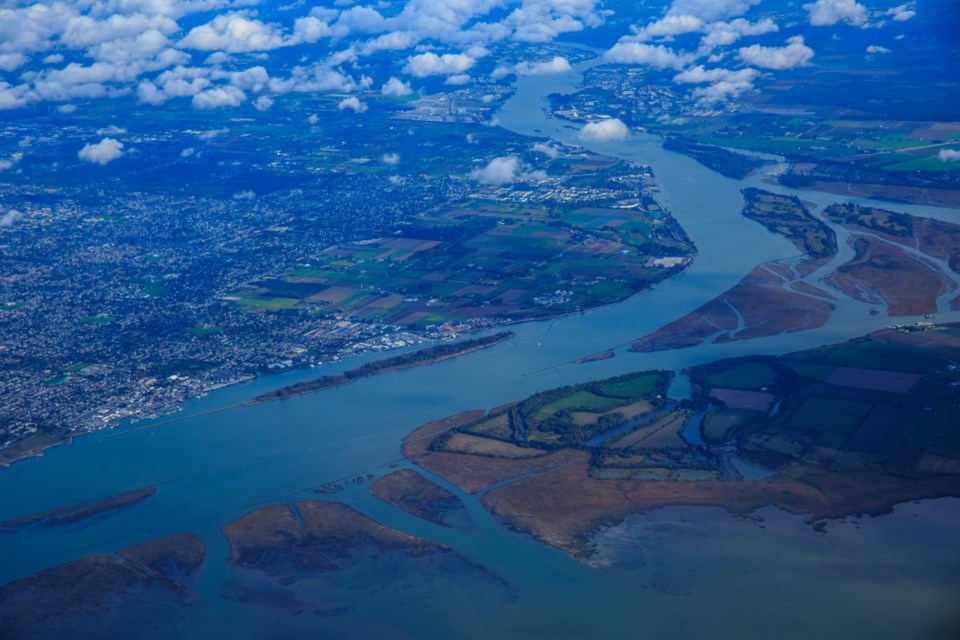The Musqueam Indian Band and Fraser River Discovery Centre Society are teaming up on a long-term project that aims to address the historic, cultural and contemporary aspects of the Fraser River from a First Nations perspective.
The Musqueam Indian Band and the society have announced a plan to develop a Place of Learning about the Indigenous heritage and teachings of the Fraser River.
“The xʷməθkʷəy̓əm (Musqueam) People are traditional hən̓q̓əmin̓əm̓ speaking Peoples who have been here as long as there has been land to live upon,” Musqueam Indian Band Coun. Nolan Charles said in a news release. “The concept of xʷtatəl̕ləm (a place of learning) related to the history of the stal̕əw̓ (river) is consistent with our approach to learning and being sʔi:w̓əsənəq (instructors) by qʷi:l̕qʷəl̕ ʔə kʷθə snəw̓eyəɬ ct, (sharing information about our teachings) with all of those in the community of our traditional territory. This is captured in our concept of nə́c̓aʔmat ct (we are all one).”
Fraser River Discovery Centre’s interactive exhibits and programming aim to showcase the Fraser River’s role in shaping B.C.’s ecological, cultural and economic diversity. The Place of Learning is intended to be a space where people can go and gain an understanding of the Indigenous history of the Fraser River watershed.
“The idea of expanding our centre as a Place of Learning for Indigenous history of the Fraser River builds on our existing First Nations exhibits and programming, and is consistent with our role as the ‘Voice of the Fraser,’” said Mark Rizzo, chair of Fraser River Discovery Centre’s board of directors. “It will also help governments, industry and society continue to meet their commitments to reconciliation and the United Nations Declaration on the Rights of Indigenous Peoples (UNDRIP).”
The parties believe progress is needed in the areas of reconciliation and the UNDRIP – even during a time of COVID.
“We understand and accept that fighting COVID-19 is our first priority, but the importance of reconciliation and the UNDRIP haven’t gone away during the pandemic,” Rizzo said in the press release. “There are still funds – public and private – that have been budgeted for reconciliation and the UNDRIP, but aren’t being used.”
The Fraser River Discovery Centre Society is a registered non-profit that operates the Fraser River Discovery Centre. Its interactive exhibits and programming aim to showcase the Mighty Fraser’s role in shaping B.C.’s ecological, cultural and economic diversity.
It’s envisioned that the Place of Learning will include a permanent exhibit and programming at Fraser River Discovery Centre, but the details will be developed between the Musqueam Indian Band, Fraser River Discovery Centre and other community partners. The parties stress that whatever is developed will be consistent with the Musqueam Indian Band’s “learn/teach/share” approach and will tell stories from a First Nations’ perspective.
Charles said the first steps in pursuing the new Place of Learning will be na:n̓ətəl̕ (talking together and having a discussion), which will involve identifying and meeting with community members who might want to support and be involved in its development.
“We believe that people and organizations are committed to reconciliation, but are often unsure how to make an impact,” he said. “Part of that may be a lack of understanding regarding what to actually do. This is an opportunity take action that everyone will be able to see and participate in.”
A core Musqueam teaching underpinning all the work being done is that there are no shortcuts to do something properly. As a result of this guiding principle, the Place of Learning is expected to be long-term initiative requiring multiple partners, with planning, development and implementation taking from three to five years.




